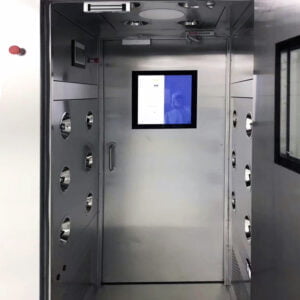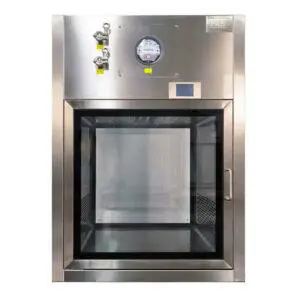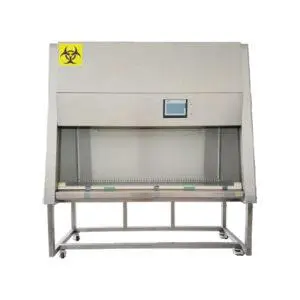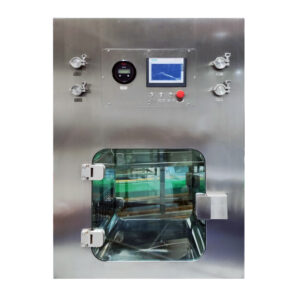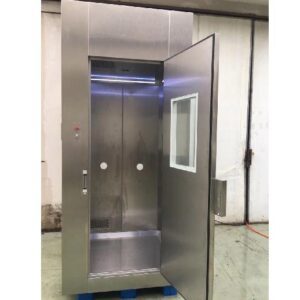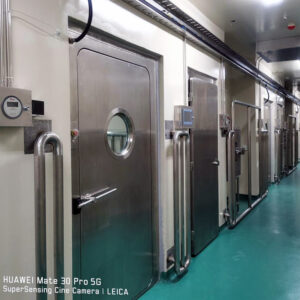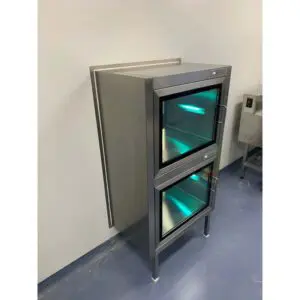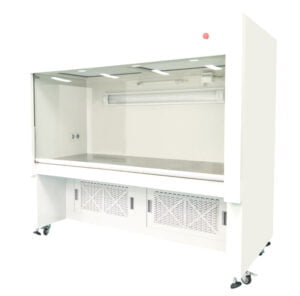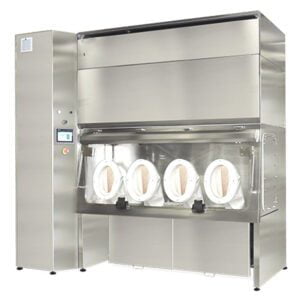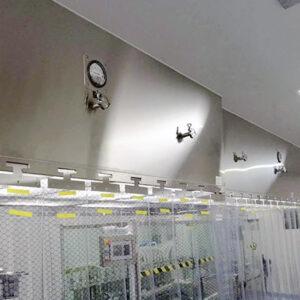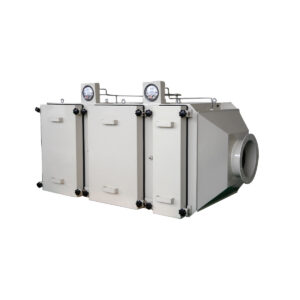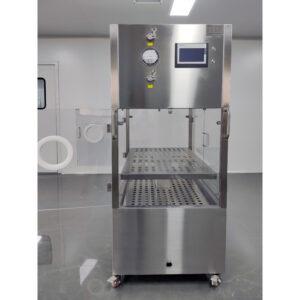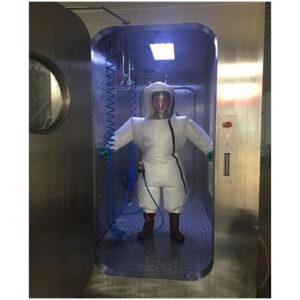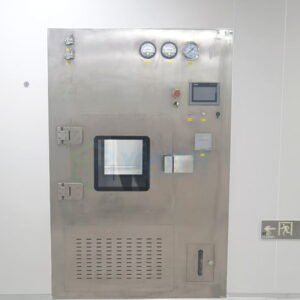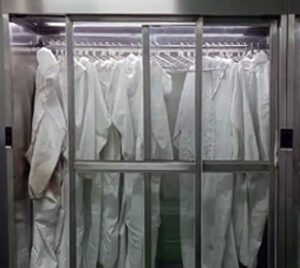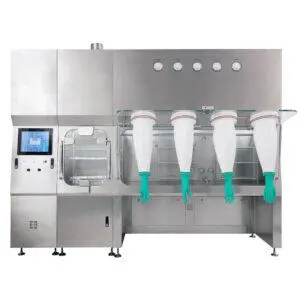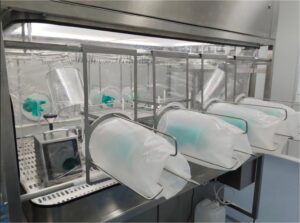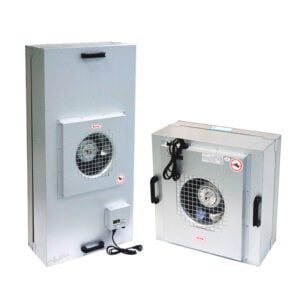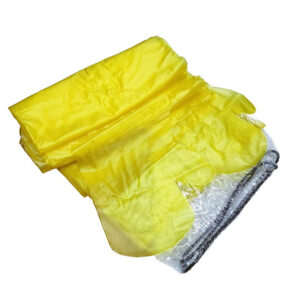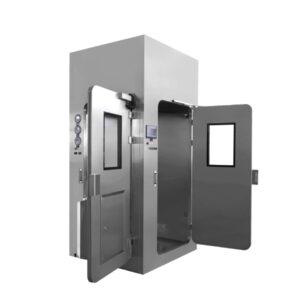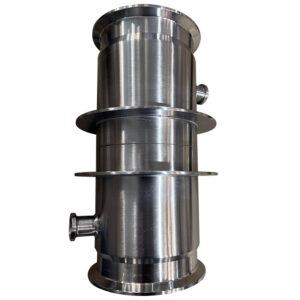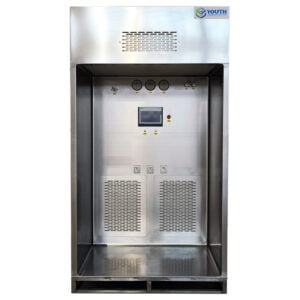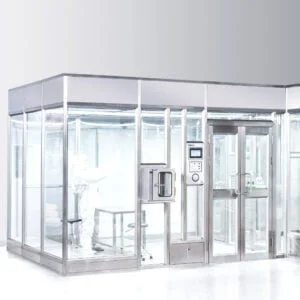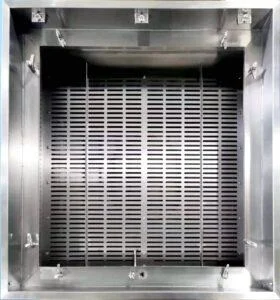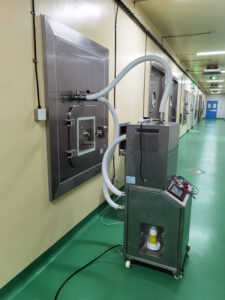In the world of containment systems, maintaining sterility and minimizing contamination risks are top priorities. One essential component that plays a crucial role in achieving these goals is the VHP (Vaporized Hydrogen Peroxide) Passbox. This comprehensive guide will take you through everything you need to know about VHP Passboxes and how they can enhance the safety and efficiency of your containment system.
What is a VHP Passbox?
A VHP Passbox, also known as a Pass-through, is a specialized device designed to facilitate the transfer of materials or items between two areas with differing cleanliness levels while maintaining the highest level of sterility and cleanliness. It serves as a crucial barrier that prevents contaminants from entering a cleanroom or controlled environment.
Why Use a VHP Passbox in Your Containment System?
The use of a VHP Passbox is essential for several reasons:
- Contamination Control: VHP Passboxes ensure that only sterile or sanitized items enter controlled environments, reducing the risk of contamination.
- Efficiency: They streamline material transfer, saving time and minimizing disruptions in critical operations.
- Safety: VHP Passboxes protect operators from exposure to hazardous materials.
How Does a VHP Passbox Work?
VHP Passboxes operate by using vaporized hydrogen peroxide to decontaminate items being transferred. The process involves the following steps:
- Items are placed in the source chamber.
- The chamber is sealed.
- Vaporized hydrogen peroxide is introduced, killing microorganisms.
- After decontamination, items are moved to the receiving chamber.
Types of VHP Passboxes
There are several types of VHP Passboxes, each designed for specific applications. The most common types include:
Single Door VHP Passbox
A single-door VHP Passbox has one access door for transferring items. It is suitable for basic material transfer requirements.
Double Door VHP Passbox
A double-door VHP Passbox features two access doors, allowing for materials to be transferred in and out simultaneously, minimizing wait times.
Interlocked VHP Passbox
Interlocked VHP Passboxes are equipped with a system that ensures only one door can be open at a time, preventing cross-contamination.
Benefits of Using VHP Passboxes
Utilizing VHP Passboxes in your containment system comes with several advantages, including:
Contamination Control
VHP Passboxes maintain a sterile environment, reducing the risk of product contamination.
Increased Efficiency
Streamlined material transfer processes lead to improved workflow and productivity.
Safety Measures
Operators are protected from exposure to hazardous substances, enhancing workplace safety.
Choosing the Right VHP Passbox for Your Needs
Selecting the appropriate VHP Passbox depends on factors such as the type of materials being transferred, cleanliness requirements, and available space. Consulting with experts in containment systems can help you make the right choice.
Installation and Maintenance
Proper installation and regular maintenance are crucial for the optimal performance of VHP Passboxes. Following manufacturer guidelines and scheduling routine inspections is essential.
Common Applications of VHP Passboxes
VHP Passboxes find applications in various industries, including pharmaceuticals, biotechnology, healthcare, and electronics manufacturing.
Regulatory Compliance
Compliance with industry regulations and standards is vital when incorporating VHP Passboxes into your containment system. Ensure that your setup meets all necessary guidelines.
Conclusion
Incorporating a VHP Passbox into your containment system is a smart investment in maintaining sterility, enhancing efficiency, and ensuring safety. With various types to choose from and a wide range of applications, VHP Passboxes have become indispensable in industries where contamination control is paramount.
Frequently Asked Questions (FAQs)
What is the purpose of a VHP Passbox?
A VHP Passbox is designed to facilitate the transfer of materials between areas with differing cleanliness levels while maintaining sterility and minimizing contamination risks.
How often should a VHP Passbox be cleaned?
The frequency of VHP Passbox cleaning depends on usage and contamination levels. Regular maintenance and cleaning schedules should be established to ensure optimal performance.
Are VHP Passboxes suitable for pharmaceutical industries?
Yes, VHP Passboxes are commonly used in pharmaceutical industries to maintain sterile conditions during material transfer.
Can VHP Passboxes be customized?
Many manufacturers offer customization options to tailor VHP Passboxes to specific needs, ensuring they fit seamlessly into your containment system.
What are the maintenance requirements for VHP Passboxes?
Maintenance requirements include regular cleaning, calibration of sensors, and periodic inspection as per manufacturer guidelines to ensure the VHP Passbox’s optimal performance.
Related Contents:
- Ultimate Guide to VHP Passbox Cleaning in Controlled Environments
- Bag-In/Bag-Out (BIBO) Systems: Operation and Maintenance Guide
- User Manual Insights: Getting the Most Out of Your VHP Passbox
- Discover the Efficiency of VHP Passboxes for Cleanroom Sterilization
- The VHP Passbox Decontamination Process Explained
- VHP Passbox Systems: Revolutionize Your Cleanroom
- Optimize Your Workspace with a Cleanroom VHP Pass-Through
- Operating Your VHP Passbox: Best Practices and Efficiency
- A Deep Dive into VHP Passboxes


